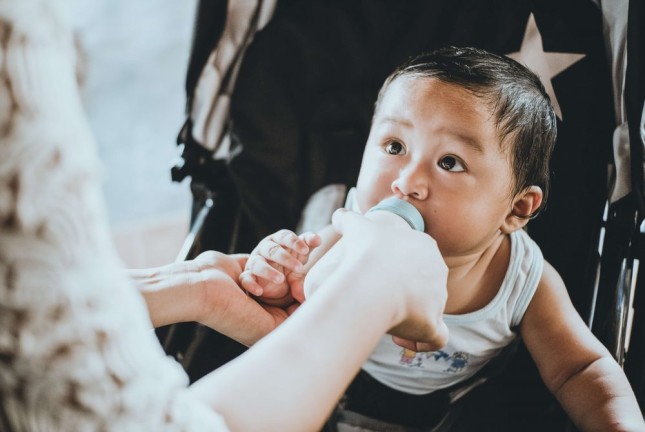-
More Countries Want to Invest in Caring. Here’s How They Should Do It
January 10, 2019 By Sarah Degnan-Kambou
At long last, my husband and I are empty-nesters. We have always worked in high-pressure jobs, and while the children were young, I put in plenty of non-work hours to care for them and for the household. My husband was unfailingly helpful, but now that our children are grown, I’m ready to renegotiate our “to do” list.
While it’s true that our chore burden is lighter now, I’m nudging my husband to expand his routine beyond taking out the trash, changing lightbulbs and washing the dinner dishes. Happily, he agrees that for us to enjoy our twilight years, we should recognize all the work it takes to run our little household, reduce chores wherever and however we can, and fairly redistribute the remaining work. I have time to indulge in some hobbies, and there’s “us” time on the horizon.
Worldwide, the responsibility for unpaid care work — caring for children, cooking, gathering wood or water — falls disproportionately on women and girls, and the economic impact is substantial. Some estimates indicate that unpaid care work, if monetized, would account for up to 10–39 percent of GDP.
In the United States, this figure is estimated to be around 20 percent. In Latin America and sub-Saharan Africa, women perform three times as much unpaid care work as men; in Asia, that figure rises to four. It is problematic that unpaid care work is not valued and measured as an economic asset in national accounts, because as is true across the world, time is money.
In this instance, time devoted to unpaid care work literally reduces the amount of time women can devote to earning money, be it formal or informal work. Beyond income-earning potential, given the burden of unpaid care work, women have less time for education, civic engagement and political participation, and yes, leisure.
The Burden on Women
We’ve taken a look at the care economy in my household. Let’s now travel to a far less privileged household in a modest fishing village on the shores of the Gulf of Fonseca in El Salvador. Juana is a mother of three young children. One day, she awakes and realizes that her husband has left her, taking the outboard motor and leaving her with the old boat and tattered nets.
She needs to feed herself and the children, and begins to fish with the nets close to shore, often taking her children with her as they are too young to leave at home. The fish in the estuary are small, her catch meagre and she earns little money. Gradually she learns to be more adept at fishing and convinces the other fishermen to tow her boat out to deeper waters where she catches much larger fish.
Fishing is a dangerous profession, and when the seas are rough, the boat capsized on several occasions, once with the children on board. Juana and her little family survive the ordeal, and she is eventually able to save enough to buy a second-hand motor, hire someone to fish for her, and buy a drying rack so she can sell dried and fresh fish on the local market.
What can we learn from Juana’s household?
First, out of adversity, Juana discovered a coping strategy that works well for her in her community. She is truly entrepreneurial. We also recognize that the lack of access to some form of affordable childcare in her community meant that Juana had to combine her caring work with her market work, occasionally placing her children at risk. Given her children were still young and could not be left alone at home, Juana had to limit her time fishing which further limited her ability to earn income. She succeeded — but while carrying a dual burden.
We All Need Care
Care is essential for the young, the sick and the elderly. We all have a right to care and be cared for. At some time in our lives, we all need care. However, countries need to develop health, education and social protection systems that support caring without penalty — for those who provide care services, those who receive care services and those who need to access care services so they can work.
Who will look out for the Juanas of this world? Will this be the year that the G20 gets serious on removing obstacles to women’s economic equality?
Read More:
- How a Healthcare Company is Helping Tackle Unpaid Carers’ Health Problems
- “Norway’s “Daddy Quota” Means 90 Percent of Fathers Take Parental Leave”
- The Care Gap: How Can Government Get Men To Do More?
Sarah Degnan-Kambou is President of the International Center for Research on Women, a global research institute that focuses on realizing women’s empowerment and gender equality to alleviate poverty worldwide.
Sources: UN Women, Council on Foreign Relations, International Labour Organization, Think20
Photo courtesy of Apolitical. All rights reserved.
The Wilson Center is partnering with Apolitical, a global network of government professionals, to share stories—like this one by Sarah Degnan-Kambou —about the value of unpaid care work and avenues for investing in caregiving to create healthier, happier societies. This care economy spotlight highlights scholarly analysis, case studies, and Q&A’s with experts and policy makers around the world to understand how strategic investments in care work could revive struggling economies, redistribute the burden of care among men and women, and could lead to innovative ways to value caregiving for its social, emotional, and economic implications.
 A Publication of the Stimson Center.
A Publication of the Stimson Center.



